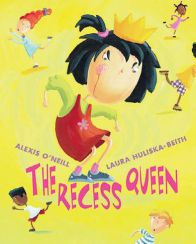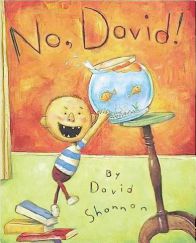CREATING SUCCESS WITH CLASSROOM EXPECTATIONS:
INSPIRING CHILDREN'S BOOKS 5 P FOR STUDENTS WITH DISABILITIES
BY JENN ADAMS
As special education professionals, we recognize the significance of teaching expectations and BY JENN ADAMS fostering positive behavior in the classroom. However, the importance of these lessons extends beyond the school walls.
Parents also play a crucial role in reinforcing appropriate behaviors at home. During the back-to-school time: many schedules, structures, and routines are taught and implemented. Listed below are five exceptional children's books that not only teach about classroom expectations, but also serve as valuable resources for parents and teachers of children with disabilities. These stories offer powerful narratives and engaging illustrations that instill essential values, social skills, and behavior expectations. These captivating books bridge the gap between classrooms and homes!
THE IMPORTANCE OF TEACHING EXPECTATIONS IN THE CLASSROOM:
Establishing clear expectations in the classroom is essential for creating a positive and productive learning environment for all students. Teaching expectations helps students understand boundaries, develop self-regulation skills, and cultivate positive relation
ships with peers and teachers. By explicitly teaching and reinforcing behavioral expectations, we provide students with a sense of structure and consistency, which enhances their overall academic and social-emotional development.
THE IMPORTANCE OF REINFORCING EXPECTATIONS AT HOME:
The lessons learned in the classroom can be further reinforced at home, creating a harmonious connection between school and the child's everyday life. When parents collaborate with teachers to reinforce expectations and behavior, children experience a seamless transition between school and home environments. Consistency in expectations helps children generalize and internalize appropriate behaviors, promoting their overall growth and success.
Here are a few captivating children's books that promote classroom expectations, while also serving as valuable resources for parents.

THE RECESS QUEEN
by Alexis O'Neill
Synopsis: The Recess Queen follows the story of Mean Jean, the Recess Queen, who learns the value of kindness, respect, and inclusion when a new student arrives. This beautifully illustrated book encourages discussions about friendship, cooperation, and resolving conflicts peacefully. Why It's Helpful: By reading and discussing The Recess Queen, both teachers and parents can engage children in conversations about the importance of respect, empathy, and cooperation. These lessons can be reinforced both at school and at home, promoting positive social interactions in various settings.

NO, DAVID!
by David Shannon
Synopsis: Based on the author's childhood experiences, No, David! tells the story of a mischievous little boy named David, who often tests the boundaries of acceptable behavior. This book showcases the love and guidance of a parent who helps David learn right from wrong. Why It's Helpful: No, David! serves as a valuable tool for teachers and parents alike. It allows them to address impulse control, consequences, and responsible decision-making. By reading this book together, parents and teachers can reinforce consistent behavioral expectations and help children understand the importance of self-regulation.